 Abai Qunanbayev (1845-1904) was a great Kazakh enlightener, poet, classic and composer.
Abai Qunanbayev (1845-1904) was a great Kazakh enlightener, poet, classic and composer.
Abai played a great part in creation of literary Kazakh language and left uneclipsed, artistic heritage.
In The Book of Words the philosopher ponds over about a human being and humanity, about difficult contradictory world, about science and education, customs, traditions and history of his nation.
We publish here some extracts from this work. Even nowadays Abai’s words sound acutely and modernly.
Abai Kunanbaev “Book of words”
Whether for good or ill, I have lived my life, travelling a long road fraught with struggles and quarrels, disputes and arguments, suffering and anxiety, and reached these advanced years to find myself at the end of my tether, tired of everything. I have realized the vanity and futility of my labors and the meanness of my existence. What shall I occupy myself with now and how shall I live out the rest of my days? I am puzzled that I can find no answer to this question.
***
Well, I have decided at length: henceforth, pen and paper shall be my only solace, and I shall set down mythoughts. Should anyone find something useful here, lethim copy it down or memorise it. And if no one has anyneed of my words, they will remain with me anyway.
***
There is an essential difference, in my view, between intelligent and stupid people.
Coming into this world, man cannot live without being attracted and excited by the fascinating things around him. Those days of questioning and passionate interests remain in a person’s memory as the brightest period of life.
A sensible man will interest himself in worthy and serious matters, he will steadfastly pursue his objectives, and even his recollections of his past struggles to attain them will be heard with pleasure and warm the hearts of his listeners. Such a person will not betray even a shadow of regret over the years he has lived.
A frivolous man dissipates his time in worthless, futile and absurd undertakings. When he comes to his senses, he realises that his best years have swiftly passed in vain, and his belated regrets bring no consolation. In his younger days he behaves as if youth were eternal, never doubting that even more captivating delights are in store for him. Yet all too soon, losing his former strength and agility, he becomes good for nothing.
Another temptation lurks in the path of passionate souls. Success — attained or within their grasp — intoxicates their senses and makes them dizzy. The flush of success clouds their reason and causes them to commit blunders; a man like this attracts attention even against his will, he becomes an object of gossip and a butt of ridicule.
Reasonable people keep their wits about them even in such critical moments; they will not lose their senses but rather show restraint and not expose their feelings to all and sundry.
But a stupid person is like a horseman galloping on a steed without a bridle: lifting his eyes to the sky as if crazy and having lost his cap in his frenzy, off he goes and does not see that the edge of his chapan covers the horse’s rear…
This is what I have observed.
If you wish to be counted among the intelligent, then ask yourself once a day, once a week, or at least once a month: «How do I live? Have I done anything to improve my learning, my worldly life or my life hereafter? Will I have to swallow the bitter dregs of regret later on?»
Or perhaps you don’t know or remember how you have lived and why?
***
It is hard to avoid at least a small degree of self-satisfaction and complacency. I have identified two kinds: pride and boastfulness.
A proud man has a high estimation of his own worth. He will do his utmost to ensure that he is not regarded as an ignoramus and an unreliable person who doesn’t keep his promises, as ill-mannered, arrogant and a shameless liar, a spiteful critic and a crook. Aware of the baseness of these vices, he will aspire to be above them. This quality is peculiar to a man of conscience, reasonable and high-minded. He dislikes to hear people singing his praises but, on the other hand, will allow no one to sully his name.
A braggart, on the other hand, does his best to be talked about as much as possible. Let everyone know that he is a batyr, rich and of noble of descent…! Yet what he overlooks is that people may also say things about him that he would not in the least like to hear. But, to the tell the truth, the other kind of fame—notoriety—doesn’t much bother him. Such braggarts are usually of three types.
The first is eager to gain fame abroad, amongst strangers. This is an ignorant fellow, but he still retains some human virtues.
The second wants to be famous in his own tribe. This type is a complete ignoramus and scarcely human.
The third one shows off before his family or in his native village, for no outsider would ever approve of his boasting. This one is the most ignorant of all, no longer a man.
He who strives for praise among strangers will seek to distinguish himself amongst his own tribe. He who desires acclaim from his tribe will strive for plaudits from his nearest and dearest. And he who is after the praise of his family is sure he will get it by extolling and praising him¬self to the skies.
***
We can name four means that promote the perception and memorization of what is heard:
First, you should acquire spiritual firmness and determination;
secondly, you should heed wise counsels attentively and with an open heart, eager to grasp the meaning of what is said;
thirdly, you should ponder over these wise words and repeat them over and over again so as to imprint them in your memory;
fourthly, you should avoid harmful states of the mind and resist them even in the face of temptation.
These states of mind are: careless sloth, indifference, senseless amusement, the inclination to morose reflection and destructive passion. These vices can destroy both your mind and your talent.
***
Those who seek learning should know certain essential conditions without which they cannot achieve their goal.
– Do not attempt to do so for the sake of profit. You should love learning for its own sake and strive for it. If you value knowledge as a supreme blessing, each new truth you uncover will bring peace and satisfaction to your soul. Memorise well what is new to you, and you will feel the desire-for new quests, and a love of knowledge will be born in your heart. Then your memory will absorb whatever you have seen and heard.
But if you have another purpose in mind, seek knowledge only with the aim of getting rich, your attitude to learning will be the same as that of a woman to her stepson. If your soul and your mind are well intentioned towards learning, it will be benevolent in turn—it will surrender to you readily. But it will show half-hearted benevolence to a half-hearted person.
– Study with clear and noble aims, not to acquire learning so as to be able to argue with other people. Now, arguments within reason help to strengthen one’s convictions, but, excessive zeal for them can only spoil a man. For lovers of wrangling will launch into disputes not for the sake of ascertaining the truth but rather to show off their knowledge and get the upper hand of other people. Such arguments breed envy, add not a whit of humanity, and do not serve scholarship—on the contrary, they simply confuse people. This is the vain occupation of troublemakers. He who leads hundreds astray from the right path is not worth the little finger of one who has brought just one man back to the path of truth.
True, disputation is one of the paths to knowledge, but a person who gives himself entirely to this runs the risk of becoming conceited and arrogant, an envious gossip. Such a person will be not averse to slander, backbiting and vituperation, which only lowers human dignity.
– If you have succeeded in your pursuit of a truth, do not turn back from it even on pain of death. But if you are not convinced of your knowledge, do not imagine that someone else will appreciate it. If you do not value your own knowledge, how can you expect recognition from utter strangers?
– I spoke previously of four harmful attitudes of mind, and among these we named careless sloth or idleness. My soul! I enjoin you, to beware of this evil! It is pernicious both for God and for man, both for reason and for honour. It is the arch enemy of everything! But there is no place for this evil where conscience resides.
– Human character is a vessel containing intelligence and knowledge. Develop your character therefore! By indulging in envy and frivolity, by allowing yourself to be influenced by the words of others and momentary passions, you may forfeit your strength of character. Learning will be of no avail if the vessel that receives your knowledge is not sound.
To attain your goal and be faithful to your duty, you should foster constancy of purpose, determination and strong will, for these help preserve the sobriety of your reason and the purity of your conscience.
***
1. Judge a man’s qualities by the intentions of his action and not by its outcome.
2. However good a thought, it is tarnished by passing through human lips.
3. You may find solace by saying wise words to a conceited fool but, more often than not, they vanish into thin air.
4. Render good to a wise man; a fool will only be spoilt by it.
5. A father’s son is an enemy to other people. But a son of mankind is your dear brother.
6. A good man may ask much, but will be content with little; a despicable one will ask much, but will be dissatisfied even if he gets more than he asked for.
7. He who works for his own benefit alone is like an animal that grazes to fill its own stomach; but he who works to fulfil his human duty, the Most High will distinguish by His love.
8. Who poisoned Socrates, burnt Joan of Arc, and crucified Jesus? Who buried our Prophet in the carcass of a camel? The masses, the multitude! The multitude is devoid of reason. Seek to direct in onto the path of truth.
9. Man is a child of his time. If he is bad, his contemporaries are to blame.
10. Had I the power, I would cut out the tongue of anyone who asserts that man is incorrigible.
11. To be left alone is like dying. The lonely person suf fers misfortunes of every kind. The world knows many a vicious thing, but also pleasures and joys. Who will endure the former in dignity? And who will not be corrupted by the latter?
12. Who among us has not known trouble? Only the weak lose hope. Nothing in this world is immutable, and misfortune cannot last for ever. Does not the bountiful and blossoming spring follow the harsh winter?
13. He who keeps silent in his anger contains his fury within himself. He who spits abuse is either a braggart or a coward.
14. Success and good luck make a man drunk. Only one in a thousand can keep cool and reasonable.
15. If you want your labours to be successful, start the job in hand wisely.
16. High office is like a high cliff. The slow snake will crawl up it and the hawk will swoop down on it. Ill-wishers start praising those who have not yet reached the top, and the latter, being credulous, will rejoice at such praise.
17. The world is an ocean, time is a breath of wind, early waves are elder brothers, and late waves are younger brothers. Generation succeeds generation, even though things seems immutable in their quietude.
18. A common man renowned for his cleverness is greater than a king who has been raised up by good for tune. A youth who sells his handiwork is worthier than an old man selling his beard.
19. A beggar with a full belly is the devil incarnate; a lazy Sufi is nothing but a hypocrite.
20. A false friend is like a shadow: when the sun shines on you, you can’t get rid of him, but when clouds gather over you, he is nowhere to be seen.
21. Be frank with those without friends; keep on good terms with those who have many. Beware of the careless man; be a shield to the destitute.
22. There is no use of anger without power, love with out fidelity and a teacher without pupils.
23. While you are seeking happiness, everybody wishes you well; but once you have attained it, your only well – wisher is yourself.
VOCABULARY OF UNFAMILIAR WORDS
aga: an elder
arshin: an old measuring rod equivalent to 28 inches
aul: village, nomadic community
ay at: quoatation from the Qur’an, verse of a surah
batyr: brave warrior, hero
bey (bai): in Central Asia, a wealthy owner of land and livestock
biy: local judge among the Kazakhs
chapan: horseman’s cloak or mantle
dombra: stringed musical instrument
dzhigit: expert horseman in the Caucasus and Central Asia
dzhut: mass starvation of cattle in winter resulting in famine Fatihab al-kitab. the frst surah of the Qur’an
Hadith: account of the words and deeds of the Prophet Muhammad and his companions, second only to the Qur’an
hazret: Muslim priest
iman: faith
ishan: lowest rank of clergy
jomart: generous man who does charitable deeds
khadi (cadi): Muslim judge
kobyz: stringed musical instrument
koumiss: mare’s milk
myrza: nobleman vested with power, philanthropist
Nogai: Kazakh name for Tatars
nokai: dull, stupid
qibla: orientation towards Mecca and the Black Stone of the sacred Kabah building in that city, to which Muslims turn when praying
surah: chapter of the Qur’an
Surt-Sart: rattle, overtalkative person
tarikat: here, a religious doctrine preaching spiritual self-perception through strict abstinence and complete humility
top-basy: tribal elder
uyezd: larger administrative district
volost: small rural district
yel-basy: tribal chief
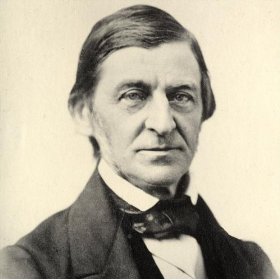
 EMERSON, RALPH WALDO (1803–1882) –the American writer and philosopher, public person, one of the most significant notionalists of the USA. In 1821, he graduated from Harvard where he had got theological education. Some of his poems – Brahma, Days, The Snow-Storm and Concord Hymn – entered the classics of the American literature.
EMERSON, RALPH WALDO (1803–1882) –the American writer and philosopher, public person, one of the most significant notionalists of the USA. In 1821, he graduated from Harvard where he had got theological education. Some of his poems – Brahma, Days, The Snow-Storm and Concord Hymn – entered the classics of the American literature.

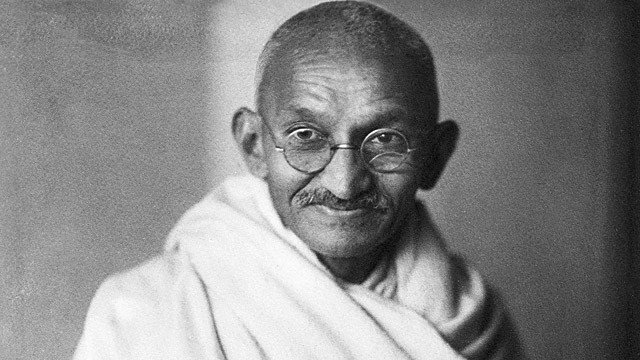

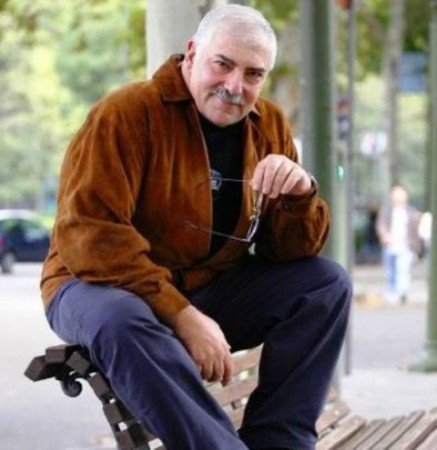



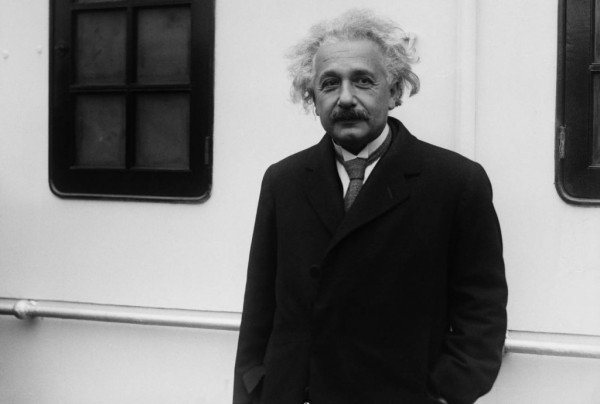

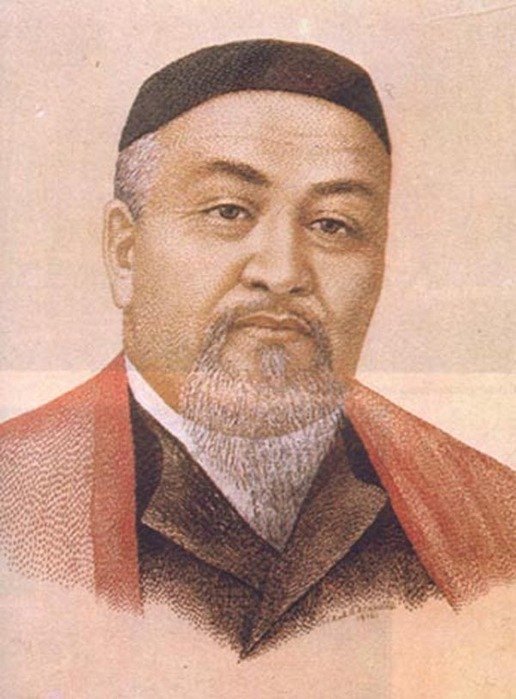

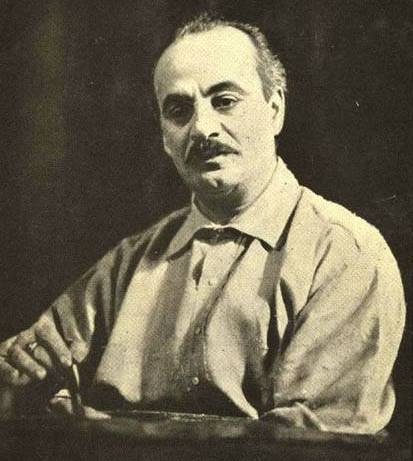




Recent Comments